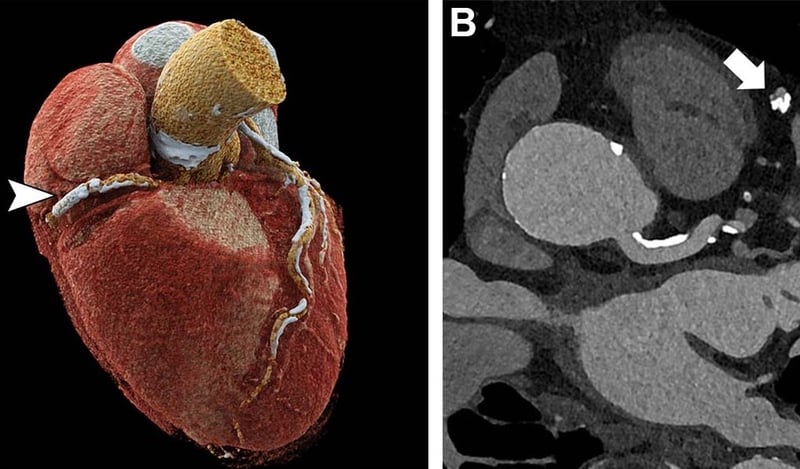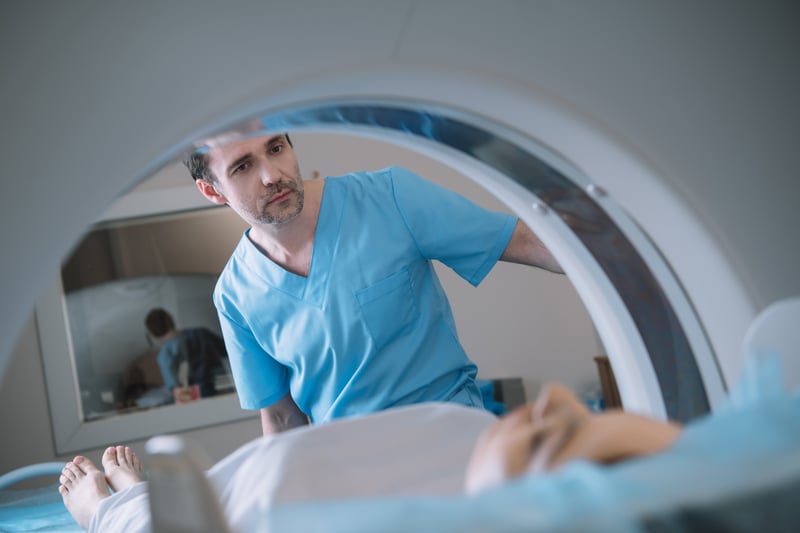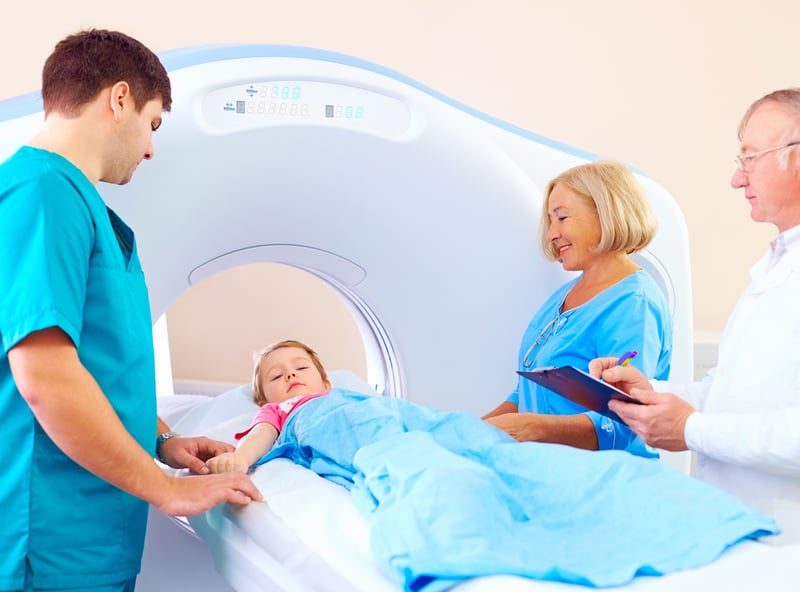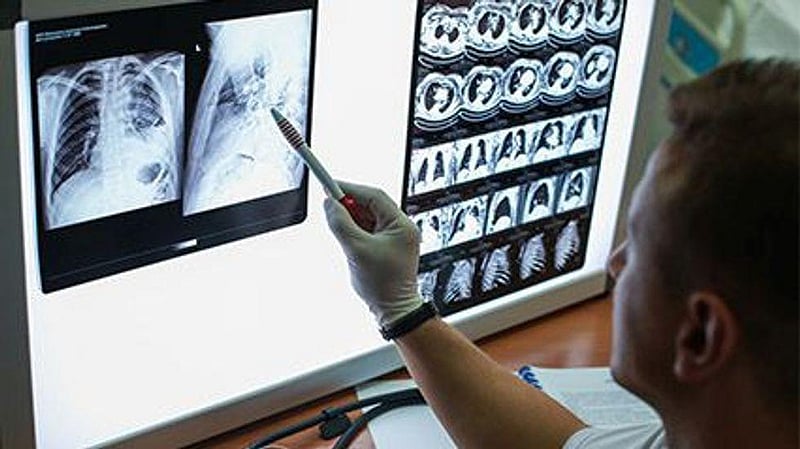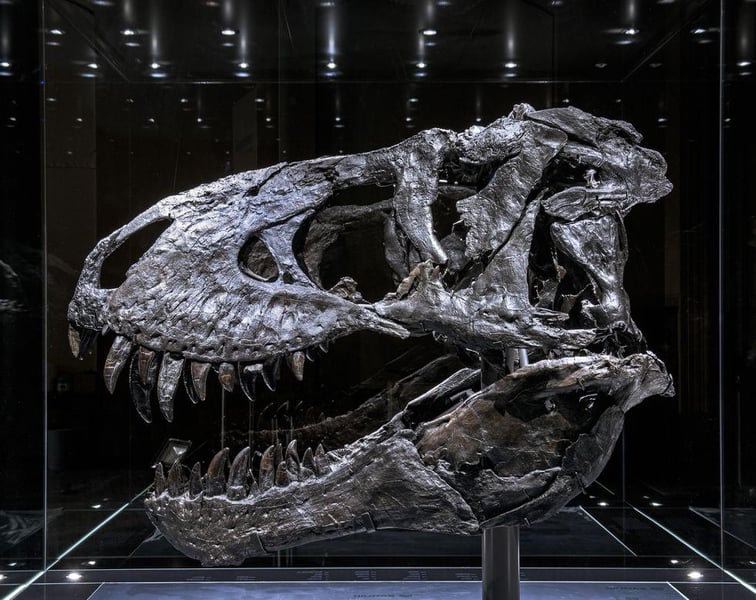Get Healthy!
Results for search "CAT Scans".
Health News Results - 14
Americans in ethnic and racial minority groups are underrepresented in Alzheimer's research, a new study finds.
Still, the review of U.S.-based Alzheimer's disease brain imaging studies found the gap is closing.
Compared with white patients, Hispanic Americans are nearly two times more likely to develop Alzheimer's as are Black Americans.
For the study, researchers analyzed ...
- HealthDay Reporter
- Steven Reinberg
- |
- July 27, 2023
- |
- Full Page
The benefits of noninvasive imaging may soon be available to patients at high risk of coronary artery disease, according to researchers studying a newer technology.
That technology is called ultra-high-resolution coronary CT angiography.
Currently, patients have coronary CT angiography (CCTA), which is highly effective for ruling out coronary artery disease when it's used in patient...
- HealthDay Reporter
- Cara Murez
- |
- June 20, 2023
- |
- Full Page
When it comes to predicting heart trouble down the road, the arteries may say a lot more than the genes do, according to a new study.
Researchers found that CT scans of the heart arteries were better than genetics at predicting middle-aged adults' risk of heart disease in coming years.
In fact, people's genes gave little useful information over and above low-tech methods, such as me...
- HealthDay Reporter
- Amy Norton
- |
- May 23, 2023
- |
- Full Page
It's well known that it's unhealthy to have belly fat accumulating around your abdominal organs, but there's a more insidious form of fat that could be even more hazardous to your health, a new study says.
Fat that infiltrates your muscles appears to dramatically increase your risk of death, according to findings published May 16 in the journal
Getting a single CT scan during childhood doesn't appear to increase a child's risk of a future brain tumor, leukemia or lymphoma, new research finds, but getting four or more scans more than doubles the chances.
CT scans use low-dose radiation, which can damage cells. Past evidence about the risks of cancer from these scans in children 18 and younger was conflicting, researchers said.
- HealthDay Reporter
- Cara Murez
- |
- April 24, 2023
- |
- Full Page
When waiting for medical test results, days can feel like an eternity.
In a new survey, patients overwhelmingly say they'd like their results immediately -- even if their provider has not yet reviewed them and even if the news is bad.
In April 2021, new rules went into effect requiring health care providers in the United States to make all results and clinical notes available immedi...
- HealthDay Reporter
- Cara Murez
- |
- March 21, 2023
- |
- Full Page
Ordering special heart scans before a major surgery to gauge risks may be unnecessary, a new study suggests.
Researchers found that surgeons can instead estimate patients' risk of heart attack or death by reviewing existing images of the chest captured months earlier during screening for lung issues, such as pneumonia or cancer.
This could avoid surgery delays and increased costs, w...
- HealthDay Reporter
- Cara Murez
- |
- March 13, 2023
- |
- Full Page
U.S. hospitals are running low on contrast dye injected into patients undergoing enhanced X-rays, CT scans and MRIs.
The fluid, which makes the routine but potentially life-saving scans readable, helps doctors identify clots in the heart and brain. The shortage is expected to last until at least June 30, t...
- HealthDay Reporter
- Ernie Mundell and Robert Preidt
- |
- May 19, 2022
- |
- Full Page
Wolfgang Lehner always considered himself "a triple threat" when it came to cancer risk.
One grandfather died of lung cancer in the 1970s. His other grandfather had his own bout with stomach cancer. And Lehner himself was a smoker.
Although the New York City cinematographer quit smoking in 2010, at age 51, he never quit worrying about lung cancer.
In 2017 his worst fear was r...
- HealthDay Reporter
- Alan Mozes
- |
- December 23, 2021
- |
- Full Page
New research offers fresh proof that the COVID-19 pandemic delayed cancer diagnoses in the United States, increasing patients' risk for poor outcomes.
For the study, researchers analyzed data from more than 9 million patients at over 1,200 Veterans Affairs (VA) medical facilities.
Procedures to diagnose cancer were used less often and there were fewer new cancer diagnoses in 2020 t...
- HealthDay Reporter
- Robert Preidt
- |
- December 6, 2021
- |
- Full Page
They once ruled the planet, but even the mighty Tyrannosaurus rex could suffer from bone disease, new research shows.
Scientists used imaging to examine the lower left jaw of a fossilized T. rex skeleton discovered in Montana in 2010. The skeleton, which is about 68 million years old and one of the most complete skeletons of the carnivorous dinosaur ever found, is at the Museum für Nat...
- HealthDay Reporter
- Robert Preidt
- |
- December 1, 2021
- |
- Full Page
Older blood thinners, especially when taken in combination with daily low-dose aspirin, are associated with a higher risk of brain bleeds and death after hospital discharge in patients treated for head injury, new research shows.
The risk fell when patients were taking one of the newer blood thinners, said the authors of a study presented Tuesday at the annual meeting of the Radiological ...
- HealthDay Reporter
- Ernie Mundell and Robert Preidt
- |
- November 30, 2021
- |
- Full Page
CT scans expose patients to radiation even as they help doctors spot serious health problems. Now a new study finds low-dose scans can readily spot appendicitis while reducing patients' radiation exposure.
"The results of this study suggest that the diagnostic CT scan radiation dose can be significantly decreased without impairing diagnostic accuracy," said lead study author Paulina Salmi...
- HealthDay Reporter
- Robert Preidt
- |
- November 15, 2021
- |
- Full Page
Many middle-aged adults with apparently healthy hearts have a "silent" buildup of fatty deposits in their arteries, a large, new study shows.
Researchers found that of more than 25,000 50- to 64-year-olds, about 42% had signs of atherosclerosis -- a buildup of "plaques" in the arteries that can lead to a heart attack or stroke.
That was despite the fact that none had any history of ...
- HealthDay Reporter
- Amy Norton
- |
- September 21, 2021
- |
- Full Page

